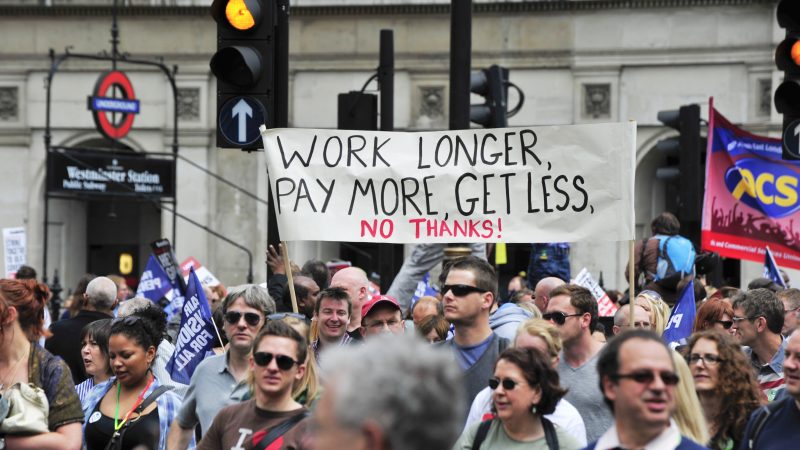
The Royal College of Nursing (RCN) has announced that members will go on strike for the first time in the union’s 106-year history. The RCN said nurses would walk out on December 15th and 20th in pursuit of a better pay deal. Speaking to BBC Radio 4’s Today programme this morning, general secretary Pat Cullen discussed the wider issues involved in the decision to take strike action: “What they are trying to do is get this government to sit up and listen carefully and to stop doing what they’re doing to the National Health Service.” Pressed repeatedly on what services nurses would be providing on strike days, Cullen was audibly frustrated, stressing that emergency departments are “bursting at the seams”, with nurses working “14-hour shifts under enormous pressure”. She highlighted that the waiting list for routine hospital treatment in England has risen to a record high of 7.1 million, emphasising: “Was any of that created by any of our nursing staff taking strike? Absolutely not, because nurses haven’t taken strike in a 106 years.”
The RCN said the government had refused its offer of “formal, detailed negotiations” as an alternative to strikes. Cullen laid the blame for the strikes squarely on Steve Barclay, declaring: “He has caused this, not the nursing staff that have been pushed to the brink.” The union leader urged the Health Secretary to “stop the spin” and “start to speak”, adding: “He can avert these strikes.” Barclay has argued that the RCN’s demands are “not affordable” and highlighted that the government has followed the recommendations of the independent NHS pay review body. Shadow Health Secretary Wes Streeting strongly criticised the government’s handling of the situation, saying: “Patients already can’t get treated on time, strike action is the last thing they need, yet the government is letting this happen. Patients will never forgive the Conservatives for this negligence.”
But the strikes also have the potential to cause political problems for Labour – in much the same way as those over the summer. Asked explicitly whether she supported nurses taking industrial action, Anneliese Dodds told Sky News: “No one supports strikes. Strikes indicate that negotiations haven’t taken place.” Though the Shadow Women and Equalities Secretary added that it was “wrong” that nurses have been “driven to this stage”, it is clear Labour needs to develop a stronger line on the strikes if it is to avoid the criticism it has faced from within the labour movement in recent months. Dodds’ response to a question on nurses’ pay – that she was not going to “pontificate on specific percentages” – will likely deepen frustrations about the stance Labour has taken towards striking workers.
Some may note that the RCN is not a Labour-affiliated union. But both Unite and UNISON have been balloting their members in the NHS about strike action. Communication Workers Union (CWU) members are taking a second consecutive day of industrial action today following a series of walkouts over the summer. Members of the train drivers’ union ASLEF will go on strike tomorrow, in a fifth day of industrial action by the union following two days of strikes over the summer and two further walkouts in early October. This discussion is not going anywhere. If Starmer’s claim that Labour is “the party of working people” is to mean anything at all, it is vital that the party take a clear and strong stance on the current disputes.
Sign up to LabourList’s morning email for everything Labour, every weekday morning.



More from LabourList
‘Unity or division’: Starmer’s message to voters in Gorton and Denton
Almost half of Labour members oppose plans to restrict jury trials, poll finds
‘How Labour can finally fix Britain’s 5G problem’